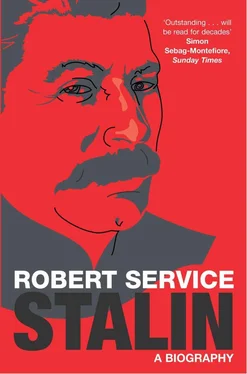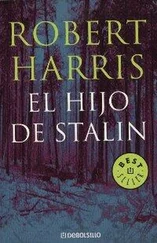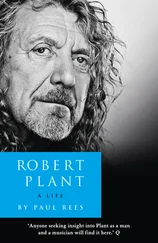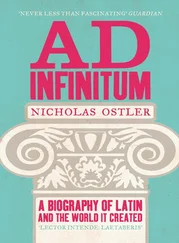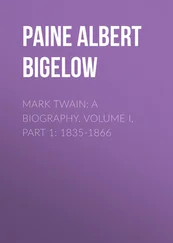POLITICAL LIFE: Khrushchëv denounces; operates within Soviet system; opposition to; embraces Marxism in Tbilisi; suspected of being Okhrana agent; revolutionary activities in Georgia; circulates ‘Credo’ on return to Tbilisi; and national question; commitment to Bolshevism; attends Fourth Party Congress (Stockholm, 1905); in London for 1907 Party Congress; preeminence as Georgian Bolshevik; arrested in Baku and imprisoned; accused of organising armed robberies; Lenin co-opts onto Central Committee; arrested (1912) and sent to Narym District; issues proclamation (May Day 1912); Lenin praises; meets Lenin in Poland; rearrested (1913); questions Lenin’s policies; initial support for Provisional Government; denied place on Russian Bureau on return from exile; admitted to Russian Bureau; attitude to Mensheviks; follows Lenin’s leadership; attitude to First World War; elected to Central Committee at April 1917 conference; at Sixth Party Congress (1917); Party work in Petrograd; policy of ‘socialism in one country’; supports Lenin’s revolutionary policy; in Executive Committee of Petrograd Soviet; hostility with Trotski; and Kerenski’s actions against Bolsheviks; role and standing in Central Committee; activities in October Revolution; improved reputation and acceptance; Lenin favours; as People’s Commissar for Nationalities’ Affairs; helps draft RSFSR Constitution; advocates and practises state violence and dictatorship; and revolutionary activities abroad; claims full military powers in Volga region; supports separate peace in First World War; assigned to procure grain (1918); in Civil War; official appointments and activities; and war with Poland; threatens resignation; criticised at Ninth Party Conference; supports Lenin in dispute with Trotski over trade unions; Lenin asks to secure control over party apparatus; appointed General Secretary of Party; foreign policy; supports NEP; Lenin’s view of and relations with; disputes with dying Lenin; favours dominance of RSFSR over republics; and recognition of Baltic republics; and Caucasian national and ethnic settlement; and formation of autonomous republics; in Lenin’s Testament; Kamenev and Zinoviev protect and support; reports at 12th Party Congress; Zinoviev acts against; at Thirteenth Party Conference; organises and officiates at Lenin’s funeral; encourages cult of Lenin; escapes reading of Lenin’s Testament at 13th Party Congress; reports at 13th Party Congress; requests to be released from posts; builds up supporters; defeats Left Opposition; in Politburo disputes with Zinoviev and Kamenev; outlines programme and purpose; defeats United Opposition; and NEP; abandons NEP; aggressive agrarian policy; and collectivisation; forced industrialisation; organises trial of Shakhty engineers and specialists; adapts to change; radical policy changes; represses ‘anti-Soviet’ groups; proclaims patriotism; despotism in rule; title as General Secretary; mistrust of factional groups; demands capital punishment for adversaries; aims and ideals; and industrial unrest; dominates economic policy; near-exclusion at 17th Party Congress; and Kirov’s assassination; eliminates opponents; oversees new Constitution (1935–6); peasant hatred of; and Soviet patriotism; appointments and promotions of functionaries; threatens to annihilate enemies of state; comments on Lenin’s Materialism and Empiriocriticism ; instigates and supervises Great Terror; cult and public image; dominance; redesignated Secretary of the Party Central Committee; attempts to eradicate political patronage; and pre-war Germany; intervenes in Spanish Civil War; ethnic deportations and executions; and foreign Communist Party activities; overtures to Nazi Germany; and war in Far East; and assassination of Trotski; receives reports from foreign sources; and non-aggression pact with Germany (1939); annexes Baltic republics; and Winter War in Finland; and German military successes in West; and German threat; surprised by German invasion of USSR; recovers control after German invasion; as Supreme Commander in war with Germany; withdraws in early days of war; wartime strategy; and German atrocities; orders no retreat at Stalingrad; co-operates with wartime commanders; and Stalingrad victory; argues for major offensive after Stalingrad; and conduct of war after Kursk; relaxes cultural rules in war; wartime concessions to Church; dissolves Comintern; wartime policy changes; encourages Slavophilia; broadcasts to nation after start of war; avoids fighting front in war; Western Allies confer with; attends conferences with Churchill and Roosevelt; demands Allies open second front; and post-war European settlement; and Warsaw Uprising; and capture of Berlin; justifies Red Army brutalities; at Potsdam Conference; knowledge of US atomic bomb; broadcasts on victory over Germany; victory celebrations (1945); view of world leaders; awareness of post-war dissatisfactions; resists post-war reform; post-war foreign policy; policy of coexistence; maintains east European territories; and Truman’s policy; and development of Soviet A-bomb; attitude to China and Mao; control of countries in eastern Europe; anti-Tito campaign; and ‘people’s democracies’ in eastern Europe; manipulates and humiliates colleagues; intelligence and information reaches; appoints ‘curators’; postwar political control; retrospective view of war; and Korean War; concern for Italy and France; excludes foreign influences; ideological motivation; succession question; purges Jews; reorganises Party structure at Nineteenth Congress; posthumous reputation; achievements assessed
WORKS: ‘Anarchism or Socialism’; ‘Dizzy with Success’; The Economic Problems of Socialism in the USSR ; Foundations of Leninism ; History of the All-Union Communist Party (Bolsheviks): A Short Course ; Marxism and the National Quesion (earlier The National Question and Social-Democracy ); Marxism and Problems of Linguistics ; On Questions of Leninism (or Problems of Leninism )
Stalin Prizes
Stalin, Vasili (Stalin’s son): birth; upbringing; on father’s Georgian origins; accompanies sister Svetlana on Metro; war service; relations with father; behaviour; disgraced after Stalin’s death
Stalin, Yakob (Stalin’s son by Ketevan) see Dzhughashvili, Yakob
Stalingrad: battle of; see also Tsaritsyn
Starostin, Mikhail
State Committee of Defence: proposed; powers; Stalin in
Stavka (wartime Supreme Command): formed; strategy; meetings; disagreements in
Sten, Jan
Stepanov, General
Stockholm: Stalin visits (1905)
Stolypin, Pëtr
Stroev, Lieut. Pëtr
Struve, Pëtr
Sukhanov, Nikolai
Sukhova, Tatiana
Sultan-Galiev, Mirza Said
Supreme Command see Stavka
Surin, Semën
Suvorov, Alexander
Suvorov, S.A.
Svanidze, Maria
Svanidze, Alexander (Ketevan’s brother)
Svanidze, Alexandra
Svanidze, Ketevan see Dzhughashvili, Ketevan
Sverdlov University: Stalin lectures at
Sverdlov, Yakov: with Stalin in Narym; attempted escape; in exile with Stalin in Turukhansk District; heads Central Committee Secretariat; Party work in Petrograd; supports Lenin’s revolutionary policy; and national question; supports separate peace in First World War; prestige; and revolutions abroad; death; Nadya Allilueva requests better accommodation from
Syrtsov, Sergei
Taiwan
Tambov province
Tampere Conference (Finland, 1905),
Tarle, Yevgeni
Tatar-Bashkir Republic
Tatars
Tbilisi: location and status; Stalin’s father works in; Stalin works in; Stalin attends seminary in; racial/cultural composition; Stalin leaves seminary; Stalin works at Physical Observatory; Stalin addresses meetings (1921)
Tehran conference (1943)
Читать дальше
